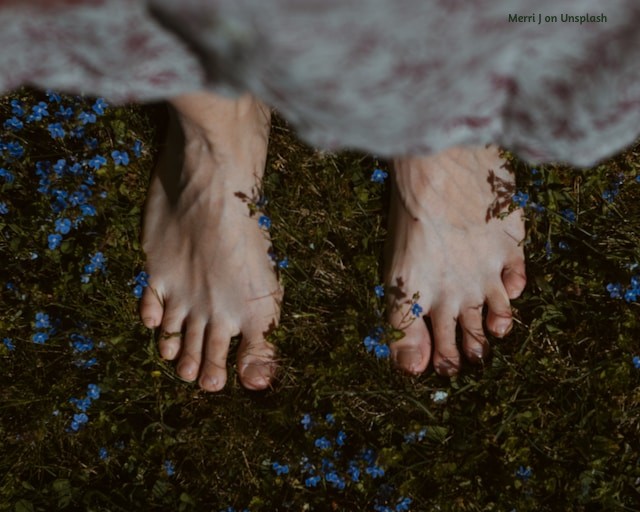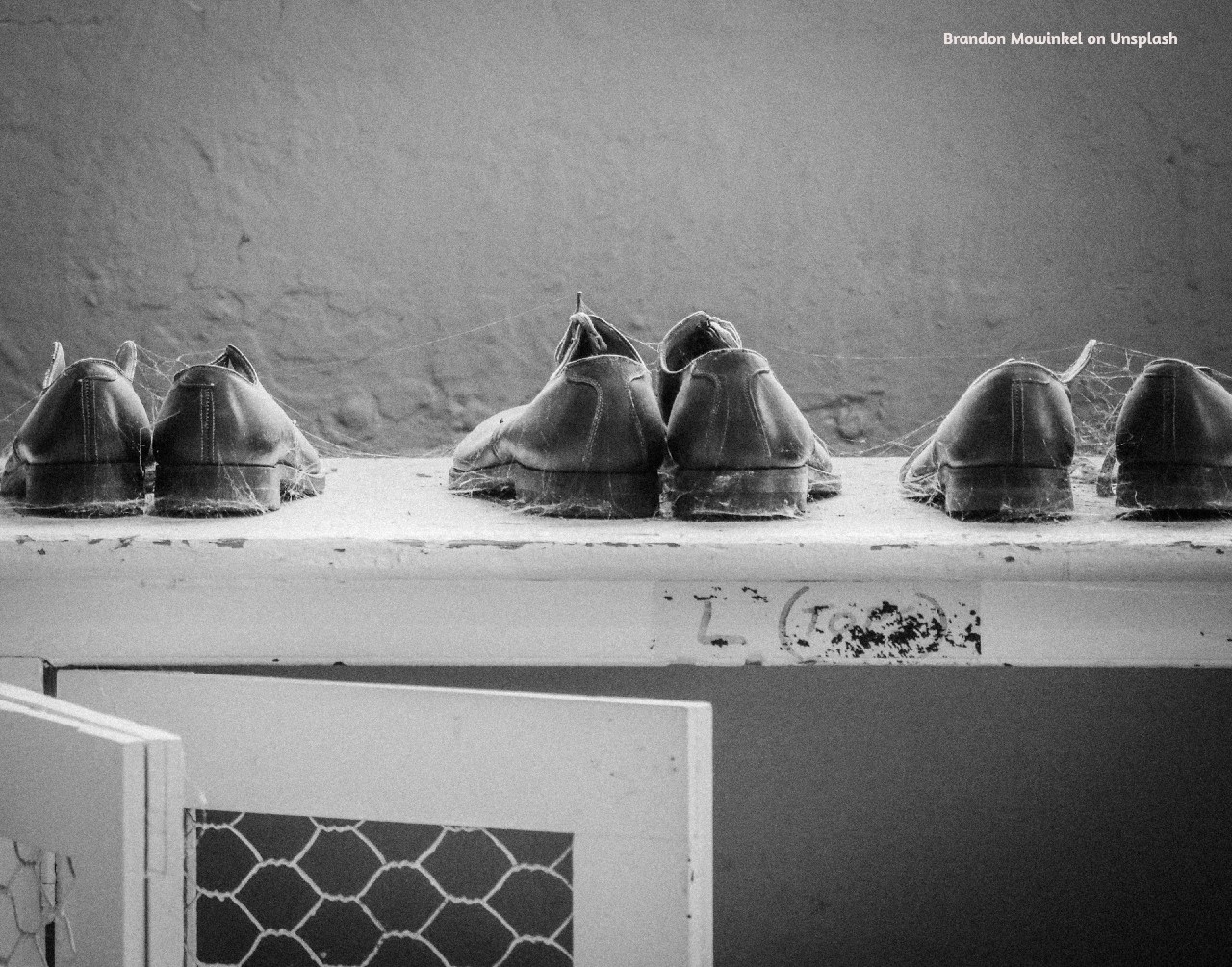My dearest love, Craig, and I had a long-standing tradition of removing our shoes when we came home. We considered our home a sacred sanctuary, and removing our shoes showed respect.
When we built our home in Colorado, we created a small room called the mud room at the front of the house. We lived on top of a small mesa, on a dirt road with a dirt driveway, one mile off the county road in the high desert of the Colorado Rockies. Dirt and dust were a significant issue.
The soil had been eroded years before by overgrazing sheep. This left caliche clay that stuck to everything when it got wet. When it rained, we tracked in mud. When it was dry, we tracked in dirt.
We created the mud room to help minimize the dirt in the house. It had a bench to sit on while removing shoes and hooks for coats.
Removing Your Shoes Is a Sacred Act

The tradition of removing one’s shoes superseded tracking dirt into our lives long before building our home. As a long-time meditator, Craig gained a deep respect for the traditions involved in honoring the sacred. One tradition was the removal of shoes when entering anyone’s home. He incorporated this and a few other traditions into his life. Removing one’s shoes is a sacred act, a sign of respect for oneself.
My tradition started before I moved to Colorado and met Craig. As a young woman, I traveled to Japan, where I visited Zen gardens and Buddhist temples and stayed in Ryokans, traditional Japanese guesthouses. I fell in love with this culture and its traditions. Removing shoes upon entering a home or any sacred space felt right as if I were honoring myself and the space I was entering.
Now, I share a home with my daughter and her husband. For years, my daughter requested that anyone entering her home remove their shoes. Her reason is not based on tradition, although this was the norm for her growing up. She has a more practical reason: cleanliness. She has allergies and loves a clean house.
Honoring Sacred Spaces

Our homes are sacred spaces, no matter what spiritual or religious beliefs we may have. My daughter’s desire to minimize allergens and keep the space clean does not diminish its sacredness.
The word sacred has a religious or spiritual connotation. However, a broader definition of sacred space refers to a space not to be violated. That would mean those who dwell in the space—you and me, and the actual space—the walls, floors, furniture, decor—inside our home. It is all sacred.
Sacredness is about respect and reverence. It honors our Divine nature. My daughter asks people to remove their shoes because of dirt, dust, and allergens, which honors her space. It is simply another way of taking care of herself and practicing self-love.
It is true that life, all of life, is sacred. Honoring the sacred is a gentle practice that can help us focus on gratitude for what we have, what is present in our lives. Honoring sacred spaces offers us the opportunity to connect with what is good and precious, to embrace what we really love.
Your sacred space is where you find yourself over and over again.
Joseph Campbell
When I take the time to recognize the sacredness of everything, my life gets fuller, richer. This is the purest, most beautiful form of gratitude I can think of.
I’d love to hear back from you.
- How do you define sacred?
- Do you consider all of life sacred?
- Do you feel the sacredness of your home and your own beautiful body?
Here is an audio of my Body Awareness guided meditation. Consider getting quiet, taking a few deep, intentional breaths, and listening. Then, look around your world. Can you notice the sheer beauty and sacredness that surrounds you?


tha k you dear friend…🥰🥰🥰
Thank you for reading Aimee!